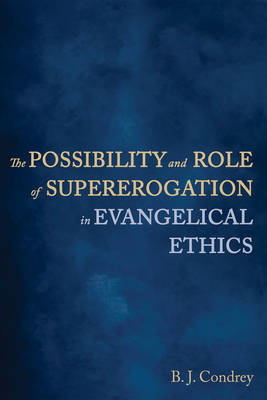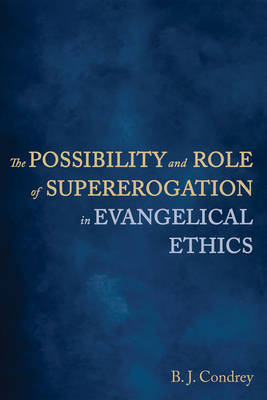
- Afhalen na 1 uur in een winkel met voorraad
- Gratis thuislevering in België vanaf € 30
- Ruim aanbod met 7 miljoen producten
- Afhalen na 1 uur in een winkel met voorraad
- Gratis thuislevering in België vanaf € 30
- Ruim aanbod met 7 miljoen producten
Zoeken
€ 65,45
+ 130 punten
Uitvoering
Omschrijving
"Supererogation" is an awkward term but a useful concept. While not a term that we use every day, the concept is very familiar to most of us. It is an act that is neither obligatory nor forbidden and that possesses moral worth. While Roman Catholics and a large number of moral philosophers affirm the possibility and value of such acts, Evangelicals from the time of the Reformation have rejected them. Yet, this is to their detriment. Relying on Gregory Mellema's insight that acts of supererogation are possible without compromising the orthodox Evangelical doctrine of justification, I argue that there is clear evidence for supererogation in the New Testament and that performing such deeds with a proper motive is essential in an Evangelical account of supererogation. It is my hope that Evangelicals will reconsider the possibility of supererogation and embrace the concept as a useful tool in counseling contexts, biblical interpretation, and homiletics.
Specificaties
Betrokkenen
- Auteur(s):
- Uitgeverij:
Inhoud
- Aantal bladzijden:
- 236
- Taal:
- Engels
Eigenschappen
- Productcode (EAN):
- 9781666712209
- Verschijningsdatum:
- 10/01/2023
- Uitvoering:
- Hardcover
- Formaat:
- Genaaid
- Afmetingen:
- 152 mm x 229 mm
- Gewicht:
- 485 g

Alleen bij Standaard Boekhandel
+ 130 punten op je klantenkaart van Standaard Boekhandel
Beoordelingen
We publiceren alleen reviews die voldoen aan de voorwaarden voor reviews. Bekijk onze voorwaarden voor reviews.











